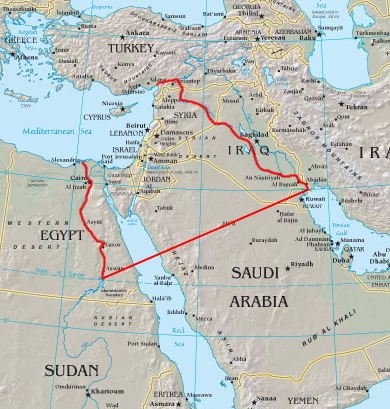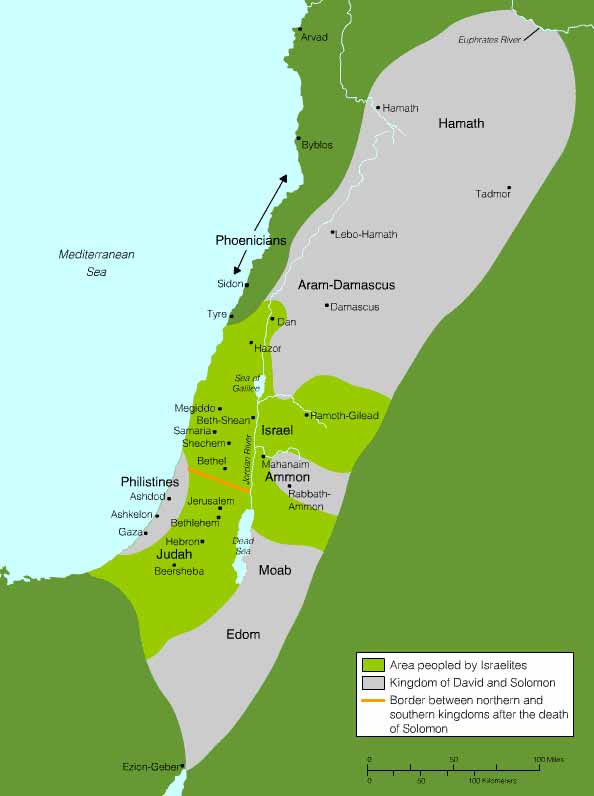11 But as for you, O man of God, flee these things. Pursue righteousness, godliness, faith, love, steadfastness, gentleness. 12 Fight the good fight of the faith. Take hold of the eternal life to which you were called and about which you made the good confession in the presence of many witnesses. 13 I charge you in the presence of God, who gives life to all things, and of Christ Jesus, who in his testimony before Pontius Pilate made the good confession, 14 to keep the commandment unstained and free from reproach until the appearing of our Lord Jesus Christ, 15 which he will display at the proper time—he who is the blessed and only Sovereign, the King of kings and Lord of lords, 16 who alone has immortality, who dwells in unapproachable light, whom no one has ever seen or can see. To him be honor and eternal dominion. Amen.
17 As for the rich in this present age, charge them not to be haughty, nor to set their hopes on the uncertainty of riches, but on God, who richly provides us with everything to enjoy. 18 They are to do good, to be rich in good works, to be generous and ready to share, 19 thus storing up treasure for themselves as a good foundation for the future, so that they may take hold of that which is truly life.
20 O Timothy, guard the deposit entrusted to you. Avoid the irreverent babble and contradictions of what is falsely called “knowledge,” 21 for by professing it some have swerved from the faith.
Grace be with you. – 1 Timothy 6:11-21 ESV
Flee, pursue, fight, take hold, keep, guard, and avoid. Paul’s final words to Timothy contain a lengthy list of infinitive verbs that are meant to solicit action and encourage godly behavior. He wants his young associate to take his role seriously and to use his position to influence the faithfulness of the Ephesian believers.
He calls him to live a distinctively different life as distinctive, set apart from all those around him, including those who craved money or had wandered from the faith. Unlike the false teachers for whom godliness was merely a way to become wealthy, Timothy was to run from that kind of attitude and make true godliness his sole goal, along with ever-increasing faith, love, perseverance, and gentleness.
Paul tells him to “pursue” godliness. The Greek word Paul used is diōkō (διώκω), which means “to run swiftly in order to catch.” It can also refer to one “who in a race runs swiftly to reach the goal.” Money, materialism, popularity, power, pleasure, significance, comfort – none of these things were to be the focus of Timothy’s life. And while Paul is addressing this last section of his letter to Timothy, it is really a call to all believers of every age. Paul had made it clear to Timothy that he was to “Teach these things … and encourage everyone to obey them. Some people may contradict our teaching, but these are the wholesome teachings of the Lord Jesus Christ. These teachings promote a godly life” (1 Timothy 6:2-3 NLT).
Everything Paul had shared in his letter was intended to be practiced and promoted among the people of God. As a leader, Timothy was to be an example of godly living to all those under his care, despite his young age.
Don’t let anyone think less of you because you are young. Be an example to all believers in what you say, in the way you live, in your love, your faith, and your purity. – 1 Timothy 4:12 NLT
As believers, our lives are always on display. Despite what we may think, others are watching. Our behavior and conduct are constantly being witnessed by God Himself, our fellow believers, and the countless lost who surround us. That’s Paul encouraged Timothy to live a life marked by consistency and outward purity. He portrayed the Christian life as a battle for good.
…fight the good fight for the true faith. Hold tightly to the eternal life to which God has called you. – 1 Timothy 6:12 NLT
For Paul, perseverance and consistency of faith were essential. He wanted Timothy to finish well. He wanted him to keep his eyes on the goal, which was the return of Christ. The reality of that event was to never be far from Timothy’s heart and mind so that he would live his life in such a way that no one could find fault with his character or conduct. There would certainly be those who disliked and disparaged his life because he lived it for God, just as Paul had experienced. Suffering for the sake of Christ was always to be expected. But Paul didn’t want Timothy to do anything that would harm his reputation as a believer or bring dishonor to God.
Paul gives Timothy one last message concerning those who are rich in the things of this world.
Teach those who are rich in this world not to be proud and not to trust in their money, which is so unreliable. Their trust should be in God, who richly gives us all we need for our enjoyment. – 1 Timothy 6:17 NLT
He doesn’t condemn them, but simply warns them not to put their trust in their money because it will prove to be unreliable and unable to save them. Money makes a lousy god. It promises the world but can’t save the soul. It can’t even bring true happiness or contentment.
But people who long to be rich fall into temptation and are trapped by many foolish and harmful desires that plunge them into ruin and destruction. For the love of money is the root of all kinds of evil. And some people, craving money, have wandered from the true faith and pierced themselves with many sorrows. – 1 Timothy 6:9-10 NLT
Instead, the rich were to put their trust in God, who is the ultimate provider of their needs. Those who had been blessed with money were to see it as a divinely ordained resource to be used for the care of others and to further the cause of the Kingdom of God. They were to be “rich” in good works and generous to those in need. They had been wealthy when God had called them, so He must have had a purpose for placing them in the body of Christ in that condition. By focusing their attention on obedience to God and service to others, they would learn to view their wealth as a tool in the hands of God, not a treasure to be hoarded and held onto.
Some of Paul’s last words to Timothy were, “guard what God has entrusted to you” (1 Timothy 6:20 NLT). He was to see his own salvation and the good news of salvation by grace alone through faith alone in Christ alone as invaluable and worthy of his constant protection.
Leadership in the body of Christ was a dangerous calling and it came with great responsibilities. Timothy had been entrusted with the message of the gospel and the care of the flock of Jesus Christ. He had an obligation to put the needs of the congregation ahead of his own. And yet, he was also to guard himself – constantly watching over his character and conduct. The same message applied to Timothy that Paul shared with the elders in Ephesus.
So guard yourselves and God’s people. Feed and shepherd God’s flock – his church, purchased with his own blood – over which the Holy Spirit has appointed you as elders. – Acts 20:28 NLT
The goal for all spiritual leaders should be godliness – not only for themselves but for all those under their care. But godliness without God’s grace is impossible. The journey of faith to which we have been called is only possible through an ever-increasing dependence upon God. We need His Word to teach and guide us. We need His Spirit to empower us. We need His grace and mercy to miraculously meet us where we are along the way and constantly remind us that godliness is our one and only calling.
But the pursuit of godliness demands action, not apathy. It requires consistency, not complacency. It is a life filled with verbs like flee, pursue, fight, take hold, keep, guard, and avoid. But it also offers the promise of rest, contentment, hope, peace, unity, confidence, and joy. The life of godliness is busy but also blessed.
English Standard Version (ESV) The Holy Bible, English Standard Version. ESV® Permanent Text Edition® (2016). Copyright © 2001
New Living Translation (NLT) Holy Bible, New Living Translation, copyright © 1996, 2004, 2015 by Tyndale House Foundation. Used by permission of Tyndale House Publishers Inc., Carol Stream, Illinois 60188. All rights reserved.


